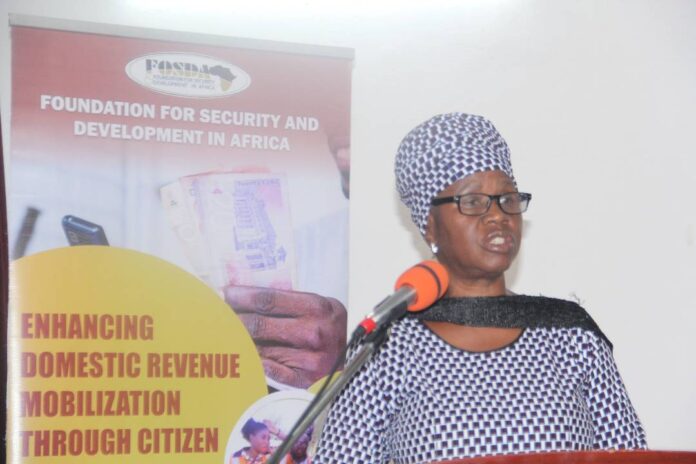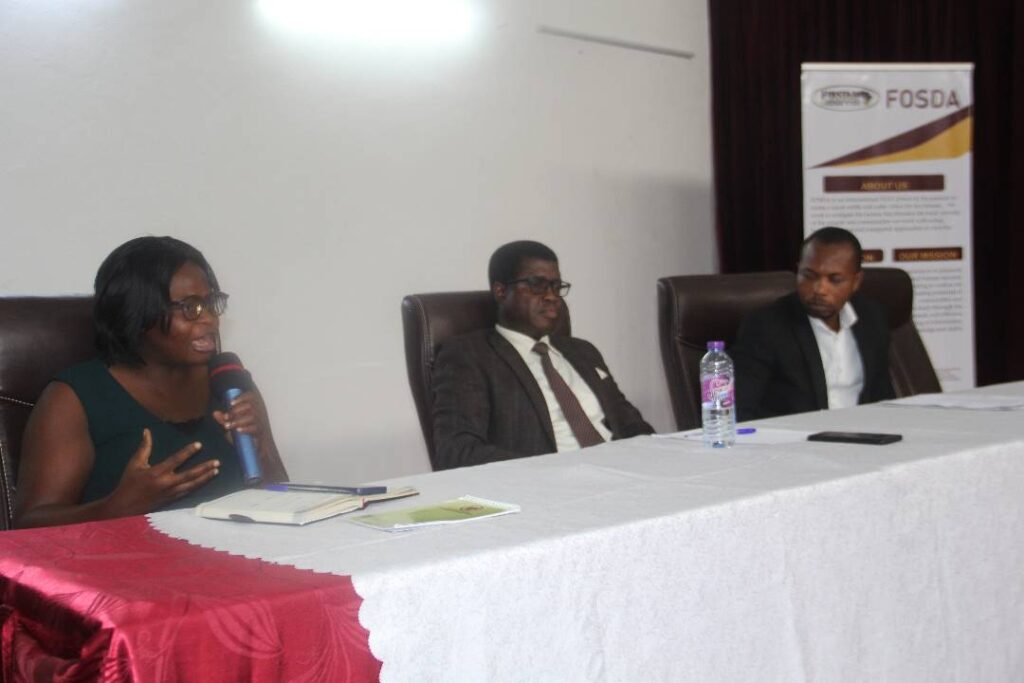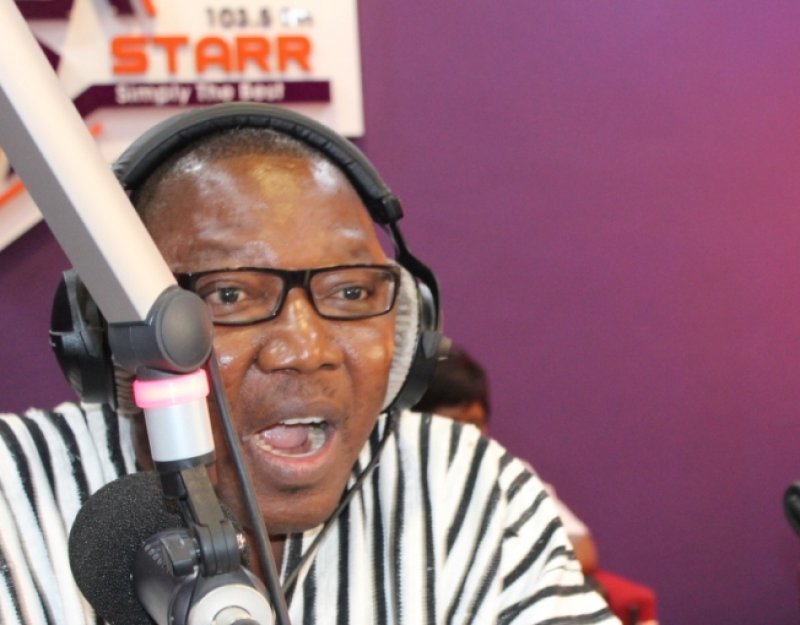
Foundation for Security and Development in Africa (FOSDA) is calling on the government to be transparent with the new property rate collection strategy.
According to FOSDA, it is only through vigorous revenue mobilization that the Metropolitan, Municipal and District Assemblies (MMDAs) can rake in revenue in order fund the numerous pro-poor services in their catchment areas.
FOSDA made these passionate calls during its Multi Stakeholder Dialogue on Domestic Revenue Mobilization for Pro Poor Services Delivery held at Institute of Local Government in Accra on December 6, 2022 and funded by OXFAM.
The event was attended by representative from Ghana Revenue Authority (GRA), Mr. Kwesi Ackaah, Fiscal Decentralization Unit Head at the Ministry of Finance, madam Deborah Vivian Ashun and representatives from Civil Society Organization (CSOs) among other interested groups.
The Board Member of FOSDA, Ms. Amina Montia in delivering her welcome address indicated that since the national economy is not in best of shape its responsibility of providing Common Fund to districts will definitely have some challenges.
“This the Unified Property Rate Platform programme to be led by the GRA as proposed by the government in the 2022 and 2023 budgets is a necessity. Even more so when IGF constituted only 22% of total income of all MMDAs in Ghana 2021,” she stated.

According to her, since the announcement of the government’s new strategy in 2022 very little is known among CSO circles, academia and citizens groups.
“As a result of speculations and theories have emerged often linking to recentralization of fiscal autonomy, impact on pro poor services and revenue sharing agreements just to mention a few.
“This dialogue offers a fine opportunity to get to know in detail what really is the approach and internal working of the property rate collection strategy. We call on the government to be more transparent in this proposed strategy of property collection and engage CSOs and citizens more in the process,” the board member stated.
She continued: “We also want to reiterate our call for MMDAs to digitize their Internally Generated Funds process to rake in more revenue and resource to provide more pro-poor services, to bridge the inequality gap and to minimize to post-covid impact on the economy on ordinary citizens.”
The Programmes Officer for FOSDA, Solomon Okai on his part stated that there have been some success stories chalked through the efforts of FOSDA on revenue mobilization forums with MMDAs across the country.
He mentioned Coast Metropolitan, Asutifi North District Assemblies in the Ahafo Region, Shama and recently Ayawaso West have improved their collections of revenue as well others adopting digital form of their Internal General Fund and mobilization.
“Cape Coast especially has developed a USSD code and is making progress with revenue mobilization. At the time Cape Coast participated in our forum they didn’t have any digital tool in revenue mobilization and just last year they did that,” he added.
Mr. Okai also stated by the end September last year through the digital form revenue mobilization Cape Coast had done 90 percent of their IGF target.
He said generally MMDAs do about 60percent of their target for revenue but through the intervention of FOSDA most of them are improving across the country.
Source: Ghana/Starrfm.com.gh/103.5FM




